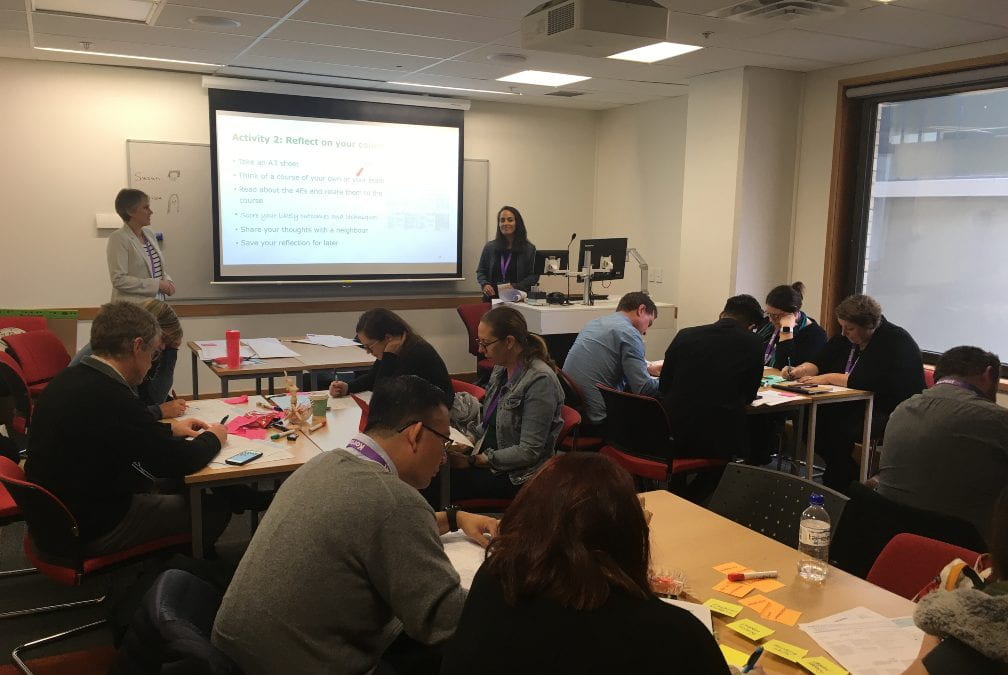By Edward Elder
I had probably only worked on the Future Ready Grads project one day a week for about a month when I clawed my way into the workshop room with more baggage under my eyes than I travel with (thanks to it being exam marking season). In other words, I still knew very little about the details of the project or the findings, and was not exactly in the frame of mind to be absorbing new information at that particular point in time.
But, having been asked to attend the workshop as a participant, it was funny how much I learned in that three-hours. In my opinion, this was thanks in large part to how polished the workshop was; I assume because it was the sixth time they had run it and had worked out many of the kinks. Every section of the workshop built off the previous one. If you were to look at, say, Activity 4 in isolation, you might think “I have no idea how to go about changing my course to better ‘enthuse’ my students”. But, once you go through the presentation and activities leading up to it, you feel like an expert about applying the 4Es pedagogical framework and how it would work best for your course.
In a way, a lot of what the workshop did was utilise what we already know, but often don’t actively think about when preparing courses; at least not as explicitly as maybe we should. This is highlighted even in the first activity, which simply asked participants “What capabilities do graduates need if they are to have successful careers and lives?” That might seem simple enough. After all, most academic institutions do have a graduate profile. But what was amazing was the variety of answers people gave that made you think “oh, of course.”
Sometimes in education, at all levels, we don’t teach students certain things, often basic things. We just expect them to know or already have been taught. To take a personal example, I still struggle with labelling basic grammar (what is a noun, a verb, and an adjective?), and I have written a book! Why? Because I was never taught. My guess is that every teacher I had pre-university just assumed someone else was or had taught us.
This is not to say the workshop tells us we should teach students grammar. But, what it does do is give us the tools to think about the gaps we may have overlooked, and give us a richer understanding of what we could be teaching our students, past fact retention. It takes the participant on a path to show them how, through the courses and knowledge they already have, they can contribute to the development of the personal attributes and capabilities that employees are looking for in a graduate. Attributes such as being principled, ethical, creative, open minded, and independent.
At face value the 4Es pedagogical framework seems simple. But once you understand the deeper meaning behind it, and how it relates to your courses and students learning more broadly, I think you will appreciate how much it can contribute to the value of your courses, and to you as a teacher. I would highly recommend looking over the material around this workshop on this website and see how it might apply to your courses as well.

Recent Comments